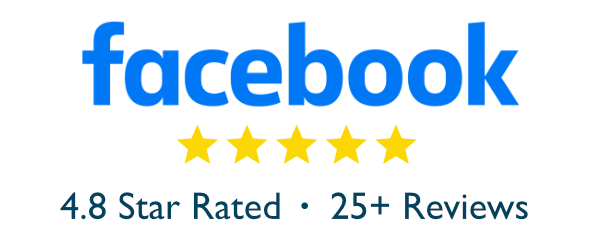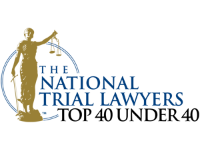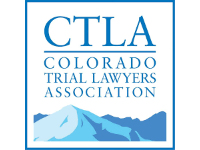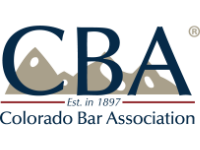
Common Mistakes People Make After an Accident That Hurt Their Claim
Common Mistakes People Make After an Accident That Hurt Their Claim At Rector Stuzynski Law Firm, We Get You More! Exceptional Results Require Outstanding Attorneys
At Rector Stuzynski Law Firm, We Get You More!
Exceptional Results Require Outstanding Attorneys



$4 Million +
Motor Vehicle Accident
$1.5 Million
Rear-End Car Accident
$1 Million
Motorcycle Accident

Millions Of Dollars Recovered Every Year For Our Satisfied Clients








Subrogation and medical liens are two of the least understood parts of a personal injury case, yet they can have a major impact on how much money you actually keep after a settlement. You might negotiate what looks like a strong settlement with the at-fault driver’s insurer, only to find out later that your health plan, Medicare, Medicaid, a hospital, or even a third-party financing company is demanding repayment from that settlement. Our job is to keep your recovery intact, reduce or eliminate improper paybacks, and make sure you are not paying more than the law requires.
This guide explains subrogation in plain language, how it works in Colorado, and the practical steps we take to protect your settlement. We also cover special rules for Medicare and Medicaid, the difference between fully insured and self-funded ERISA health plans, Colorado medical provider and hospital liens, and why Colorado’s made whole statute can be a powerful shield for injured people.
Subrogation is the idea that if your insurer pays your accident-related medical bills, it can later seek reimbursement from the money you recover from the person who caused your injuries. The request can be framed as subrogation, reimbursement, or repayment. Different payers use different words, but the idea is the same. These claims can come from:
Each category follows different rules. Knowing which rules apply is the first step to protecting your settlement.
When an insurer or provider enforces subrogation or a lien, the repayment usually comes out of your settlement before you receive funds. That means every dollar of payback reduces your net recovery. In many cases, we can reduce or eliminate those paybacks by applying Colorado statutes, federal law, plan language, and equitable doctrines that require lienholders to be fair, to share costs, or to wait until you have been fully compensated.
Colorado law gives injured people strong protections. Our legislature codified a version of the made whole doctrine that prioritizes the injured person’s full compensation before most payers can collect reimbursement. In short, you should be made whole first. Only when you have been fully compensated does a payer typically get to recover anything, and even then its recovery should be reduced by a fair share of attorney fees and costs.
Colorado’s approach matters in real life because many settlements are constrained by policy limits. If your medical bills, wage loss, and non-economic damages exceed what is realistically collectible, Colorado’s made whole statute can block or limit reimbursement claims that would otherwise strip your settlement down to nothing. This is one of the primary tools we use to protect client recoveries.
Even when a payer is entitled to some reimbursement, Colorado recognizes that it is unfair for a payer to benefit from your lawyer’s work without sharing the cost. That is the common fund idea. In practice, the payer’s claim is reduced by its proportionate share of your attorney fees and case costs. This prevents windfalls and aligns everyone’s incentives toward reasonable outcomes.
Colorado’s collateral source rule generally prevents a negligent defendant from paying less just because a collateral source, like insurance, covered your bills. At trial, this allows juries to consider the full reasonable value of medical care rather than discounted insurance payments. That is a separate issue from subrogation, but it often works hand in hand with the protections above to keep your overall recovery fair.
MedPay is optional auto insurance that pays your medical bills regardless of fault. In Colorado, insurers are not allowed to subrogate MedPay payments against your injury settlement. If a MedPay carrier tells you it is entitled to repayment, we push back, because Colorado law prohibits it.
Private plans come in two flavors, and the difference matters.
Even with ERISA plans, there can be room to negotiate. Some plan documents do not clearly waive the common fund fee share, or they contain ambiguities that we can use to reduce the amount claimed. Every plan is different, which is why careful review and negotiation matter.
Medicare is a secondary payer. If there is a liability settlement, Medicare has a statutory right to reimbursement for injury-related payments it made. These claims are handled through the Medicare Secondary Payer system, and failure to repay can trigger penalties. We confirm what Medicare actually paid, challenge unrelated charges, pursue reductions where appropriate, and make sure the conditional payment amount is accurate before funds are disbursed.
Medicaid liens work differently. Federal law and Supreme Court decisions limit Medicaid’s recovery to the portion of the settlement attributable to medical expenses. States cannot take from non-medical categories, like pain and suffering or wage loss. We apply these rules to protect your non-medical compensation and limit the Medicaid repayment to the legally permitted slice.
Colorado law allows hospitals to record liens for the reasonable value of care provided to an injured person, and it also has a separate framework for health-care provider liens. Recent legislative changes impose disclosure and fairness requirements, restrict add-on charges such as interest or finance fees, and address assignment of provider liens to third parties. We use these statutes to check whether the lien was properly created, whether the charges are reasonable, and whether reductions are required. If a hospital later learns there is insurance, it must submit bills in good faith to the payer just like any other patient.
Early in the case, we identify every potential payer. We gather your health plan information and verify whether the plan is fully insured or self-funded. We obtain Medicare or Medicaid status if applicable. We ask providers whether they intend to assert liens and, if so, whether they complied with the statutory requirements. We also track MedPay benefits and confirm that no MedPay reimbursement will reduce your recovery in violation of Colorado law.
We document all categories of loss and check the available insurance coverage. If liability policy limits are modest, the made whole rule often becomes the centerpiece of our strategy. We calculate what full compensation would look like, compare it to the collectible pool, and prepare a package that shows why reimbursement should be reduced or denied.
Colorado’s statute lists what must be disclosed to a payer when you intend to enforce the made whole protections. We send the required notices, detail policy limits and costs, and invite the payer to explain its position. If it disputes whether you are fully compensated, the statute provides for arbitration to resolve the issue. We prepare for that possibility, but most disputes resolve through targeted negotiation once the payer sees the numbers.
If a payer is entitled to some reimbursement, the amount must be reduced by its fair share of your attorney fees and litigation expenses. This can be a large reduction. We apply the common fund principle and the statutory language to ensure the payer does not receive a free ride on your case.
Before any funds are distributed, we verify every figure. For Medicare, we obtain the final demand. For Medicaid, we confirm the proper allocation to medical expenses only. For private plans, we confirm the plan type, the right to reimbursement, and all negotiated reductions. For hospitals and providers, we audit the lien to make sure it is valid, timely, and limited to reasonable charges. Only after these checks do we disburse funds so that you are not surprised later.
Self-funded ERISA plans are different. Federal law preempts many state rules that would otherwise protect you, which is why we start with the plan document. If the plan clearly states a right to first-dollar reimbursement and disclaims fee sharing, courts often enforce it. That said, not every plan says this, and some plans are silent or ambiguous about sharing costs, identifying the specific fund, or tracing recoveries. We scrutinize the plan to find leverage, including equitable arguments supported by Supreme Court cases interpreting ERISA reimbursement provisions. With the right facts and careful negotiation, we can still achieve meaningful reductions.
Medicare has to be repaid for injury-related conditional payments. In some cases involving future medical needs, Medicare expects the parties to consider a future allocation so that it does not end up paying for care that a primary payer should cover. Although formal set-asides are more common in workers’ compensation than in liability claims, we still evaluate whether any future considerations are necessary to keep you compliant. We challenge unrelated charges, seek waivers where appropriate, and make sure the final demand accurately reflects only what Medicare is legally entitled to recover.
After two Supreme Court decisions, states cannot claim your entire settlement to repay Medicaid. Instead, they are limited to the portion of the settlement that represents past medical expenses, not pain and suffering or wage loss. When Medicaid asserts a larger claim, we use these cases to negotiate a legal reduction. The effect can be substantial, especially in policy-limits cases where non-medical damages make up the bulk of your recovery.
Hospitals and providers sometimes choose to treat on a lien rather than bill health insurance. That can help you access care when insurance is not available, but it also means a lien may attach to your settlement. Colorado statutes now require strict disclosures, limit add-on charges, and restrict the use and discovery of lien assignments. We check that the provider followed the law to the letter. If the provider failed to submit bills to an available insurer when required, or added finance charges that the statute prohibits, we press for significant reductions or complete withdrawal of the lien.
In Colorado, that outcome is unlikely when state law applies. The made whole statute prioritizes your full compensation and requires fee sharing. Even when a payer has rights, we can often reduce the claim significantly. Self-funded ERISA plans are the main exception because federal law can allow them to enforce stricter reimbursement terms, but even then there is room to negotiate.
No. Colorado law prohibits MedPay subrogation, so those benefits should stay in your pocket. If someone asks for MedPay reimbursement, tell us immediately so we can respond.
That is exactly when the made whole protections matter. If your total damages exceed what is collectible, most payers in Colorado must step back or accept reductions, and disputes can be resolved through the statute’s arbitration process if needed.
No. Medicaid can recover only from the portion of the settlement allocated to medical expenses, not from categories like pain and suffering. We enforce that limit during negotiations.
Because self-funded ERISA plans can be exempt from state protective rules and may enforce reimbursement based on plan language. If your plan is fully insured, Colorado’s made whole statute and fee sharing rules generally apply. We verify your plan type at the outset so we can build the right strategy.
If you have health insurance, we usually want providers to bill it rather than stacking charges on a lien. If a hospital later learns there is applicable insurance, Colorado law requires good-faith billing to that payer. This helps keep charges reasonable and gives us a clearer path to reduce any remaining lien.
Colorado’s statute contemplates specific notices to payers if you intend to invoke made whole protections. We handle that for you, but your help with policy information, explanation of benefits, and any letters you receive will make the process faster and more effective.
We examine the plan summary, the master plan document, and any subrogation or reimbursement provisions. The fine print can decide whether state protections apply, whether the plan owes a share of attorney fees, and how much leverage we have in negotiations with the plan’s recovery vendor.
We do not release client funds until every lien and reimbursement claim is verified, reduced where possible, and reflected in a written resolution. That includes obtaining a final demand from Medicare, ensuring Medicaid is limited to medical allocations, and confirming that private plans and providers complied with state and federal law.
A driver with minimum liability limits causes a crash that leaves you with months of treatment and lost wages. Your total damages are well above what the at-fault insurer can pay. Your health insurer paid much of the treatment. In Colorado, we use the made whole statute to argue that you have not been fully compensated and that the health plan should take nothing or accept a deep reduction, and we enforce fee sharing on any remaining claim. The practical effect is that your net recovery increases significantly compared to what would happen in other states without these protections.
You are on Medicare and settle your case. Medicare’s conditional payments list includes unrelated care. We challenge the inaccuracies, remove non-injury charges, and obtain a corrected final demand. That keeps your compliance intact while preventing overpayment.
A provider treated you on a lien and then tried to add finance charges and interest. We apply Colorado’s health-care provider lien statute, which restricts those add-ons and imposes disclosure requirements, then negotiate a lawful reduction.
Your employer plan is self-funded and asserts first-dollar reimbursement. We audit the plan language. If it fails to disclaim fee sharing or contains gaps, we argue for a common fund reduction. If the language is airtight, we still push for practical reductions based on collectability, litigation risk, and administrative costs. We aim to make the plan’s net recovery fair without eroding your compensation more than necessary.
We start by identifying every potential lien or subrogation claim and by confirming which laws apply. We document your full damages and the realistic amount collectible. We send the required notices and apply Colorado’s made whole and common fund protections. We verify Medicare or Medicaid demands and trim them to the lawful amounts. We audit hospital and provider liens for statutory compliance and reasonableness. With self-funded ERISA plans, we analyze the plan text for weaknesses and negotiate to a fair resolution. Then we provide a clear closing statement so you see exactly where every dollar goes.
If you have questions about how subrogation or medical liens could affect your settlement, our team can help. We will review your health plan, verify Medicare or Medicaid issues, scrutinize any hospital or provider liens, and build a strategy to protect your recovery from day one. Contact Rector Stuzynski LLC for a free consultation. We handle the legal heavy lifting so you can focus on your health.

This article was written by Michael Stuzynski of Rector Stuzynski Law Firm. Michael is a decorated personal injury attorney that has been helping Colorado Springs injury victims get compensation since 2019. With hundreds of injury settlements under his belt, he is an expert in all areas of personal injury law and litigation.

Common Mistakes People Make After an Accident That Hurt Their Claim At Rector Stuzynski Law Firm, We Get You More! Exceptional Results Require Outstanding Attorneys

Understanding Comparative Negligence and How It Impacts Your Case At Rector Stuzynski Law Firm, We Get You More! Exceptional Results Require Outstanding Attorneys CALL FOR

How Personal Injury Cases Are Valued During Settlement Negotiations At Rector Stuzynski Law Firm, We Get You More! Exceptional Results Require Outstanding Attorneys CALL FOR

Why Insurance Companies Try to Minimize Your Claim (and How We Fight Back) At Rector Stuzynski Law Firm, We Get You More! Exceptional Results Require

What Is Subrogation in Personal Injury Cases and How Does It Affect Your Settlement? At Rector Stuzynski Law Firm, We Get You More! Exceptional Results

How Pre-Existing Conditions Affect Personal Injury Cases At Rector Stuzynski Law Firm, We Get You More! Exceptional Results Require Outstanding Attorneys CALL FOR A FREE
We provide legal services for personal injury and accident victims throughout the state of Colorado, but we focus on clients in these areas: Colorado Springs, Manitou Springs, Cimarron Hills, Northeast Colorado Springs, Southeast Colorado Springs, Stratmoor, Fort Carson, Air Force Academy, East Colorado Springs, Old Colorado City, Pleasant Valley, Broadmoor, Stratton Meadows, Fountain, Northwest Colorado Springs, Gleneagle, Northgate, Briargate, Monument, Woodmoor, Black Forest, Pueblo, Canon City, Larkspur, Security-Widefield, Peyton, Falcon, Calhan, Castle Rock, Teller County, El Paso County, Elbert County, Park County, Douglas County and nearby cities.
We serve clients injured in the following zip codes: 80907, 80909, 80918, 80917, 80931, 80932, 80933, 80934, 80935, 80936, 80937, 80941, 80942, 80946, 80947, 80949, 80950, 80960, 80962, 80977 ,80995 ,80997 80901, 80912, 80904, 80915, 80905, 80910, 80923, 80922, 80919, 80920, 80916, 80939, 80914, 80951, 80924, 80927, 80938, 80906, 80840, 80829, 80902, 80809, 80841, 80911, 80908, 80929, 80819, 80921, 80925, 80132, 80926, 80913, 80863, 80817, 80831, 80133, 80930, 80860, 80814, 80813, 80118, 80106, 80928, 80866, 80816, 80808, 80104, 80116, 81008, 80864, 80135, 81240, 81007, 80109, 81290, 80107, 80108, 80425, 81215, 81221, 80117, 80827, 81212, 80134, 80835, 81003, 80131, 81226, 81001, 80138, 80125, 81002, 81009, 81010, 81011, 81012, 80124, 81244, 80126, 80820, 80130, 80163, 80433, 80129, 80833, 80112, 80832, 81025, 81005, 81223, 81006, 80470, 80127, 80122 and beyond.